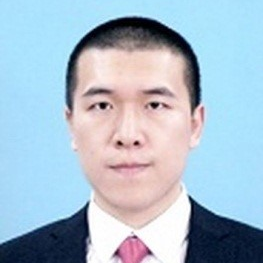Advances in Green Energy, Environment and Carbon Neutralization 2022–2024
A special issue of Energies (ISSN 1996-1073). This special issue belongs to the section "B: Energy and Environment".
Deadline for manuscript submissions: 15 August 2024 | Viewed by 1603
Special Issue Editors
Interests: algae; anaerobic fermentation/digestion; energy and resource recovery; sludge treatment; biological treatment processes; advanced oxidation process
Special Issues, Collections and Topics in MDPI journals
Interests: algae; biological wastewater treatment; bioelectrochemical system; emerging containments; anaerobic fermentation/digestion; energy and resource recovery
Special Issues, Collections and Topics in MDPI journals
Special Issue Information
Dear Colleagues,
With the rapid development of our society, environmental problems from industrial, life, and agricultural pollutions are becoming more and more serious all over the world. The whole ecological balance of the earth is changing. The massive destruction of the environment has brought about negative effects and even poses a great threat to humanity.
We must face this situation head on and take action to solve our environmental problems. This special issue focuses on how green energy technologies help to reduce environmental pollution and thus influences the sustainable development of the Earth. The purpose of this Special Issue is to bring together innovative academicians and industrial experts in related fields and establish an academic platform on the communication of latest research and developmental activities.
Thank you very much!
Dr. Hongyu Ren
Prof. Dr. Fanying Kong
Guest Editors
Manuscript Submission Information
Manuscripts should be submitted online at www.mdpi.com by registering and logging in to this website. Once you are registered, click here to go to the submission form. Manuscripts can be submitted until the deadline. All submissions that pass pre-check are peer-reviewed. Accepted papers will be published continuously in the journal (as soon as accepted) and will be listed together on the special issue website. Research articles, review articles as well as short communications are invited. For planned papers, a title and short abstract (about 100 words) can be sent to the Editorial Office for announcement on this website.
Submitted manuscripts should not have been published previously, nor be under consideration for publication elsewhere (except conference proceedings papers). All manuscripts are thoroughly refereed through a single-blind peer-review process. A guide for authors and other relevant information for submission of manuscripts is available on the Instructions for Authors page. Energies is an international peer-reviewed open access semimonthly journal published by MDPI.
Please visit the Instructions for Authors page before submitting a manuscript. The Article Processing Charge (APC) for publication in this open access journal is 2600 CHF (Swiss Francs). Submitted papers should be well formatted and use good English. Authors may use MDPI's English editing service prior to publication or during author revisions.
Keywords
- environmental problems
- environment pollution
- green energy technologies
- sustainable development
- bioenergy
- energy conversion and management
- water-energy-food nexus
- recycling technologies






